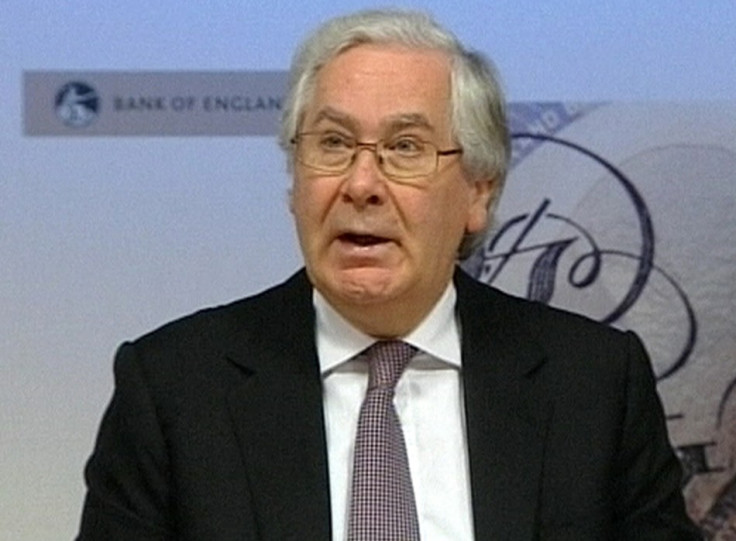Bank of England Holds Interest Rate at 0.5% and QE at £325bn

Bank of England rate-setters have held the base interest rate at its record-low 0.5 percent and put off a new wave of quantitative easing (QE), despite the dismal economic environment.
It is the 39<sup>th consecutive month that the Bank's Monetary Policy Committee (MPC) has voted to keep the interest rates at its record low in a bid to encourage consumer spending, but which has hurt savers, as Britain wallows in its second recession in four years.
"It seems that a 'wait and see' position has been adopted for the moment," Anna Leach, Confederation of British Industry (CBI) head of economic analysis, said.
"The ongoing crisis in the euro area will continue to put pressure on fragile business conditions for the foreseeable future.
"But we still expect the UK economy to improve modestly later in the year, with further falls in inflation providing some support to family incomes."
In May when the Bank's £325bn quantitative easing programme, known as the asset purchase facility, concluded, the MPC decided not to expand its monetary stimulus.
The asset purchase facility, which saw the Bank buy up high quality assets such as gilts in order to improve liquidity in the markets and get businesses spending, started in January 2009 with a £200bn target.
After two extensions it was brought up to a £325bn target. Many economists think another round of QE from the Bank is inevitable, as the economy struggles to kick-start.
Fears over sticky inflation and the effect further QE could have on the cost of living in the UK have been somewhat allayed by inflation dipping to its lowest point in two years, at 3 percent in April.
In the absence of public spending as a way to boost economic growth, with the government committed to its austerity programme, many eyes are on the Bank of England as the only institution with the power to foster a UK recovery.
However recent research by accountants Ernst & Young showed that the businesses gifted cash under the QE programme had been hoarding the money, rather than investing it in jobs and growth, defeating the object of the stimulus.
Some economists argue that if another round of monetary stimulus must happen then it needs to take a different form to the asset purchase facility.
Latest official GDP figures showed that Britain's economic output contracted by -0.3 percent for its second consecutive quarter in the first three months of 2012, as construction sector activity collapsed by -4.8 percent.
Private industry data shows solid growth in the UK's services sector, its biggest contributor to GDP representing around three quarters, along with slowing growth in the construction sector.
The only sector to suffer a sharp contraction, according to purchasing managers surveys, is manufacturing.
Growth forecasts by the Bank of England for the UK economy have been slashed, to 0.8 percent for the year from 1.2 percent, blaming uncertainty in the crisis-mired eurozone.
© Copyright IBTimes 2025. All rights reserved.






















